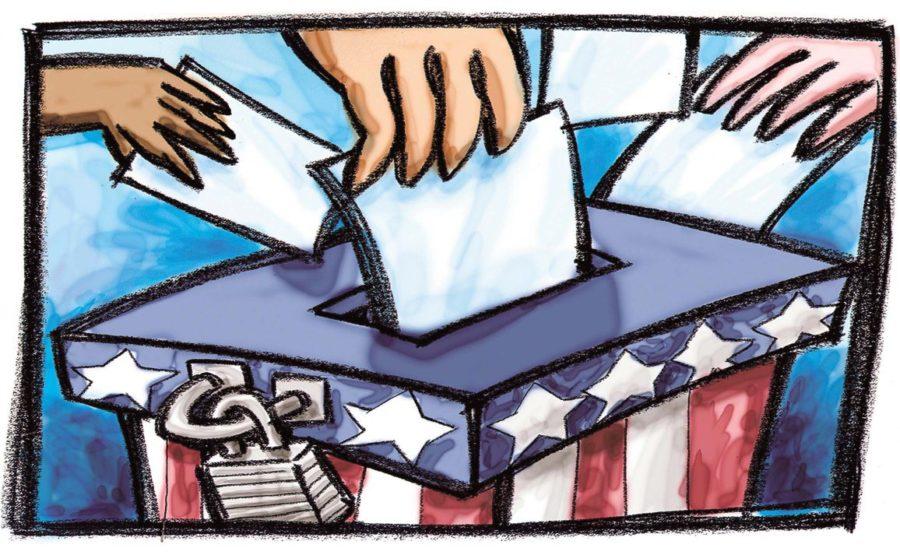Early voting opens at SIU next week
March 1, 2016
Spring break this year means more than pools and parties — it means presidential polls.
Students who plan to spend their spring break anywhere but in line at a polling booth on March 15, the day of the Illinois primary, have the opportunity to cast their vote on campus next week.
The early voting will be open from 10 a.m. to 5 p.m. March 9 to 11 at the Student Center.
Advertisement
Voting precincts open on March 15 include University Hall, Grinnell Hall, Lentz Hall and the Carbondale Civic Center. Students can also register, change their address and cast a vote for a presidential candidate at the Student Center.
Jackson Country Clerk Larry Reinhardt, whose office runs all elections in the county, said students who missed the regular registration period that closed Feb. 17 can still register during the state grace period, which lasts until the day of the primary.
Reinhardt said he has some concern that college students, who already have the lowest voter turn-out rates, will show even lower participation numbers because of the overlap of many universities’ spring breaks with the election.
“Traditionally the student voting population is little to none in the partisan primaries,” he said.
In the past Reinhardt said only two or three votes were cast in every student precinct during the primary election.
At the national level, Reinhardt said about 30 percent of voters are submitting ballots early, doubling the numbers in the last presidential election when early voting was still a fairly new concept.
Reinhart said the voting process is simple and quick — about 15 minutes.
Advertisement*
When registering to vote, citizens are required to bring two forms of identification — one of which must show a current resident address. Examples include a driver’s license, insurance card and student ID.
“We hope that students will realize that, regardless of where they go after graduation, many of these offices will still affect their daily life,” Reinhardt said. “We hope that everyone will come out and voice their opinion and show their support for the candidate of their choice.”
History professor Jonathan Bean, adviser of Southern Illinois Young Americans for Freedom, a conservative-minded registered student-organization, said his stance as a non-voter is different from most.
“I believe that change is much more attainable through non-political means,” Bean said. “The rational choice is to focus your efforts on ways to change the world that don’t involve voting.”
Bean said he believes the two-party system limits voters options and that in many states, an individual’s vote doesn’t matter.
David Yepsen, director of the Paul Simon Public Policy Institute, disagrees.
“The problems that America and Illinois have aren’t going to be solved by having a smaller electorate,” Yepsen said. “They’re going to be solved by more people getting involved.”
He said this election is influential to college-aged voters because Illinois and the U.S. have record levels of debt. Students see the effects of this every day, he said.
Yepsen predicts Republican front-runner Donald Trump and Democratic front-runner Hillary Clinton are likely to be ahead in the delegate count, but not in the majority. For this reason, he said the Illinois vote is important.
“If somebody doesn’t want to vote, that’s their prerogative, but I don’t want to hear them complaining about anything the government does for the next few years,” he said.
Anna Spoerre can be reached at [email protected] or 618-536-3325.
Advertisement









